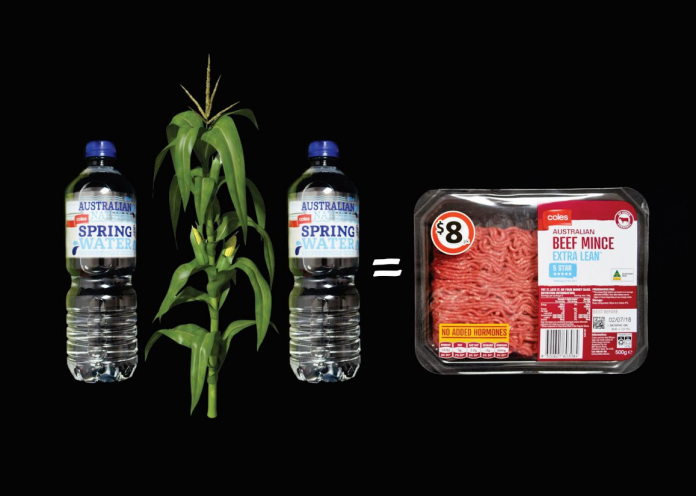
Supermarket giant Coles has partnered with Australian manufacturer Plantic Technologies to become the nation’s first retailer to introduce packaging made entirely from a combination of recycled and renewable material for a wide range of its products.
Made from recycled PET, the company’s innovative trays feature a thin layer of its renewable barrier material which helps keeps the meat fresh.
The thin Plantic plant starch layer uniquely washes away during the recycling process, allowing the PET tray to be recycled.
Coles Director of Fresh, Alex Freudmann, described the move an important new step towards achieving the company’s goal to make all Coles Brand packaging recyclable by2020.
“For four years, our Coles Brand beef, lamb and pork mince has been packaged in recyclable trays sourced from Plantic,” Mr Freudmann said.
“We now want to take the next step by transitioning a wider range of our fresh meat and poultry trays to Plantic’s new packaging so that it is not just recyclable but also made from recycled plastics and renewable plant materials including corn.”
“We understand the important role that packaging plays in maintaining food safety, supporting product longevity and reducing food waste. At the same time, we are committed to reducing our impact on the environment and continue to look for opportunities to increase the content of recycled material in Coles Brand packaging and improving recycling communication to customers on pack.”
Plantic Technologies’ innovative trays are made from recycled PET, with a thin layer of Plantic’s renewable barrier material which helps keeps the meat fresh.
The thin Plantic plant starch layer uniquely washes away during the recycling process, allowing the PET tray to be recycled.
Plantic Technologies CEO Brendan Morris said the deal will strengthen the local recycling industry and help solve Australia’s mounting waste crisis.
“The problem in Australia is that there hasn’t been lot of processing of kerbside recycling done on-shore. Instead we’ve been sending it to China,” he said.
“As a result, there has been little investment to reprocess the waste within Australia and there’s not enough capacity here.”
“At the same time, Australia is importing plastic into the country that can’t be recycled. These two factors combined means the waste is just piling up. We decided that we needed to do something, or that mountain of waste will continue to grow.”



















